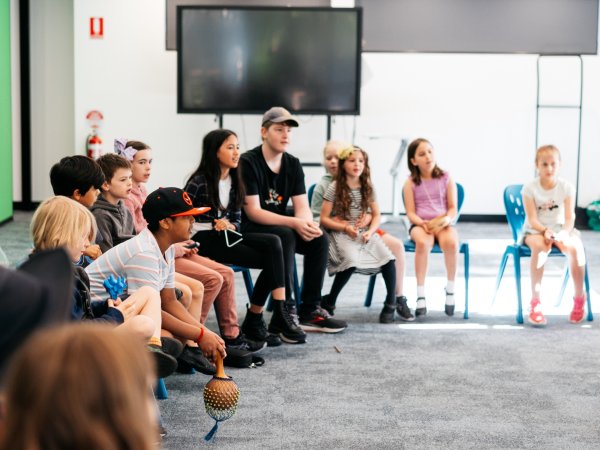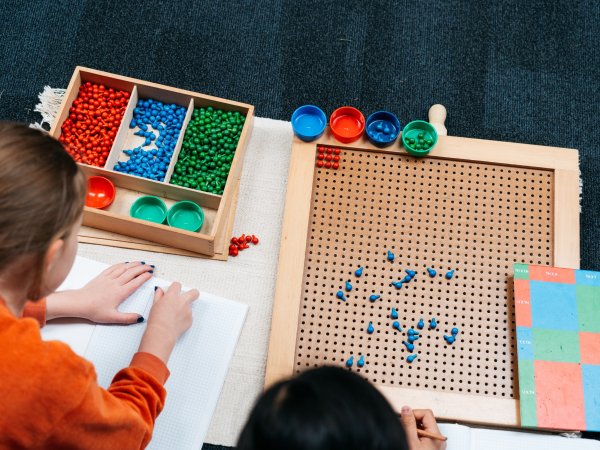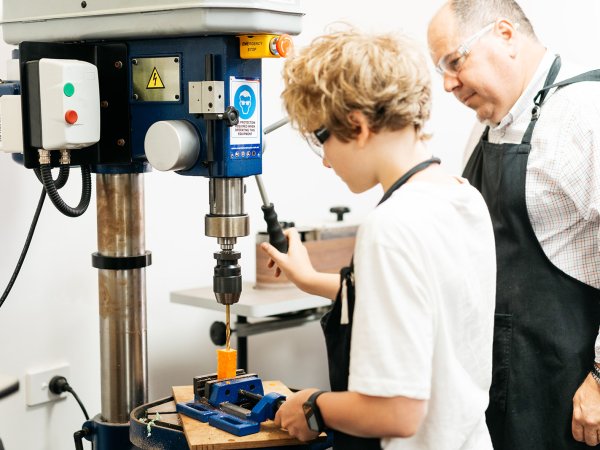Our Approach at Northside Montessori School
“…it is not true that I “invented” what is called the Montessori method. I have studied the child, I have taken what the child has given me and expressed it, and that is what is called the Montessori method.” – Maria Montessori

Dr Maria Montessori’s wonderful educational method has timeless benefits for the education of children around the world, and how it can transform the way that your child learns.
The Montessori Method is nothing like what you have or might experience in a traditional school. It is a revolutionary method of education that captivates and entices children to be engaged in their learning. It inspires them to delve deeper into concepts and encourages them to be the best learner that they can be. It is the hidden gem of educational practice that other schools only dream of replicating.
The Montessori classroom is a non-competitive environment, with students striving to reach their personal best and helping their peers to do the same. The Montessori approach places the student at the centre of their learning experience. Lessons are conducted one on one or in small groups. We follow the individual; nurturing their interests and designing work to meet each individual student’s needs. Students are introduced to many of the syllabi concepts through concrete materials and hands-on exploration. They can choose work independently, which consolidates their understanding of the lessons presented and develops their sense of responsibility for, and ownership of their learning. Research skills are important to Montessori work and the introduction of these skills begins in 3-6.
The classrooms are comprised of multi-age groups: 3-6 years of age, 6-9 years of age, 9-12 years of age and secondary. The philosophy underpinning combining the age groups is based on Montessori’s understanding of student development. The younger students learn from the older students, who in turn, role model appropriate behaviour, work habits and instruction for the younger students. The younger students are inspired to reach new goals, and peer teaching and sharing of research and knowledge is encouraged. Learning in the Montessori setting is not considered competitive but is a collaborative and rewarding endeavour. Students are motivated to do their personal best and to encourage others.
“The secret of good teaching is to regard the child’s intelligence as a fertile field in which seeds may be sown, to grow under the heat of flaming imagination. Our aim is not only to make the child understand, and still less to force him to memorise, but so to touch his imagination as to enthuse him to his innermost core. We do not want complacent pupils, but eager ones. We seek to sow life in the child rather than theories, to help him in his growth, mental and emotional as well as physical, and for that we must offer grand and lofty ideas to the human mind.”
“The teacher’s task is no small or easy one! She has to prepare a huge amount of knowledge to satisfy the child’s mental hunger, and she is not, like the ordinary teacher, limited by a syllabus. The needs of the child are clearly more difficult to answer.”



